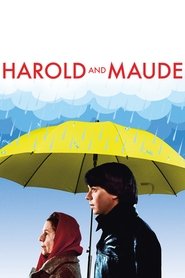It took a surprising amount of time for me to realise that the guy who was "once the right-hand man to General MacArthur" now doesn't have a right hand. (Unrelatedly, did you know that the term 'May—December' originates in Chaucer?)
If you want a bit more fun, check out Roger Ebert's pan and a similar review from the New York Times.
Maude practices what she preaches—she poses nude for an ice sculpture and lives in an old train car, transitory symbols of impermanence and movement that capture her way of looking at life.
— Brian Eggert (Deep Focus Review)
Throughout, the film’s daring use of the zoom lens is an objective correlative for Maude’s philosophy. The old lady pushes Harold to see himself as part of a much larger continuum—to recognize his uniqueness, his worth as a human being, but without letting his head get so big that he gets lost in it.
— Matt Zoller Seitz (Criterion)
The Cat Stevens soundtrack—unquestionably one of the greatest in the history of the medium—[…] plays as both running commentary and harmonic transition device, adds an essential dimension to Ashby’s vision, quelling the manipulation of a traditional score while still reflecting and reinforcing his motifs. Stevens’s lyrics work almost as voiceover narration, coloring and enlivening an otherwise dark, deadpan comedy. He’s an omniscient presence, a character unto himself, a spiritual gateway for an audience cold to such guileless expressions of humanity.
— Jordan Cronk (Slant Magazine)
It’s hard to find a [Manic Pixie Dream Girl] with depth, a three-dimensional character with relatable motivation and agenda, who nevertheless is tasked with dragging the male protagonist out of his funk via lively quirks and life-affirming platitudes. Honestly, the only one that comes to mind is Maude.
— Oktay Ege Kozak (Paste Magazine)
Synopsis: The young Harold lives in his own world of suicide-attempts and funeral visits to avoid the misery of his current family and home environment. Harold meets an 80-year-old woman named Maude who also lives in her own world yet one in which she is having the time of her life. When the two opposites meet they realize that their differences don’t matter and they become best friends and love each other.

